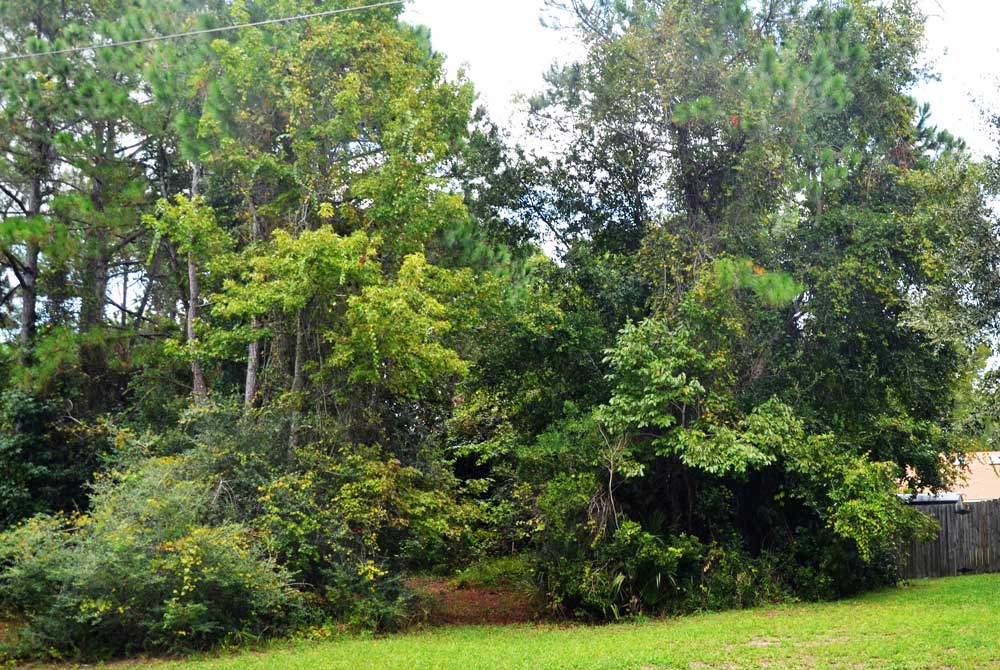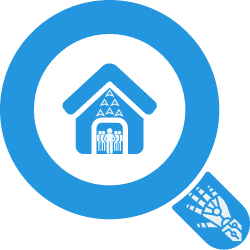
On February 8, former Flagler County resident Raymond Spiewak got a call from his son. Spiewak, now living in Massachusetts, was told that there had been a strong offer on his 12,000 square foot lot in Palm Coast’s L Section.
Spiewak didn’t have an interest in selling the lot, which he bought in 2016. He was planning on building a retirement home on the land one day. Still, he figured he should log onto Zillow.com, the biggest real estate listing website, and see what other lots in the area were selling for. That’s when he got a shock that just about knocked him out of his chair.
His lot was listed for sale.
How? Why? And, huh? He hadn’t listed it, nor had anyone in his family. “You just sit there staring at it for a minute like, ‘how could this be?’” Spiewak said.
So Spiewak did a little investigating, and learned what many other landowners are discovering these days: Fraudulent listings, and scam artists pretending to own property to make a quick buck, are prevalent everywhere.
The police, the FBI, and other law enforcement agencies are trying to keep up, but the criminals are usually one step ahead.
Every day, hundreds of listings pop up on Zillow and other sites that are unauthorized. Overseas con artists offer fake documents, make phony phone calls, and send illegitimate emails, to brokers and title companies.
The property owner getting defrauded often has no idea it’s going on until it’s too late.
“It’s hard for owners and hard for (real estate) agents to catch this, because scammers have gotten very good at falsifying documents, and phone numbers, and anything else needed,” said Michael Grossholz of AM Home Realty, of Port Orange. “You have out-of-state owners sometimes, and you have criminals taking advantage of some sellers not being very savvy on computers and social media.”
Spiewak said once he brought the phony listing to the attention of the realtor whose name was on the listing, Jennifer Wagner of Coastal Realty Pros, she immediately had the listing pulled.
Agents like Wagner and Grossholz get listings from various places that are “third party referrals,” meaning they could’ve been sent through realtor.com, which is a clearinghouse for property listings.
Spiewak said he’s learned that just about anyone, armed with correct information about a property, and a working phone number, can get a sale listing for a property through.
“All over the country, often with empty lots, these listings go up and sail right through because the agents want to get the listings and make the sales,” Spiewak said. “And honestly, since Covid-19, so many of these deals get done over the phone or Zoom, which makes it easier (for the scammers).”
Not surprisingly, Spiewak said law enforcement officials told him many of these criminals use international phone numbers and are based in foreign countries, making them harder to track.
And Spiewak said he was also told that even when scammers are caught, they don’t stop trying, and in fact, are emboldened.
“You’re counting on a lot of things that have to happen for these people to be caught and prosecuted,” Spiewak said.
Grossholz said there are some checks and balances that realtors can do, including a system called Forewarn, which he said agents use as real-time verification of who you’re dealing with.
But for landowners, the title company can be only real backstop to catch fraud. Ruzanna Tarannik is an owner and title agent at Agents Choice Title Company in Palm Coast, and she said people in her business have many steps they take to see if the potential buyer is legit.
“First we send out a physical letter, with signature required, to the address on file with the property appraiser,” Tarannik said. “In the letter we say we have received your contract on your lot, we want to make sure it’s actually you, and questions like that. “Then we send an email to the potential buyer, and this is where the red flags start.”
Tarannik said she’ll often hear a wild story from the scammer about having a problem coming to the closing, or that they’re not local and don’t have access to a computer to do a Zoom closing, and other cockamamie stories.
The documents Tarannik said she receives are often totally legit-looking, with stamps and picture ID’s and everything that would be required. Even foreign sellers are able to duplicate very real-looking notarized Embassy documents within minutes of being contacted.
“A few times I’m wondering, ‘there’s no way they could have done it that fast,’” Tarannik said. “But all we can do is stop the sale and flag it with the police, and notify the real buyer. What the police do after that, is up to them.”
So what can sellers like Spiewak do to prevent this? Tarannik had several suggestions, including frequently checking public records against their name, in court documents and on record with the town or county you live in; contact all three of the major credit bureaus (Equifax, Experian and TransUnion) to request credit be blocked, so no third party can use your name for credit checks; and contacting the Internal Revenue Service to put a block on accessing your tax returns.
“Title companies are definitely getting better at stopping these, better at catching them before money changes hands,” Tarannik said of scammers.
Still, Spiewak is frustrated. Even after filing a report with the Flagler County Sheriff’s Office and having the listing removed, Spiewak said a few weeks later he again saw his Palm Coast lot up for sale, again unauthorized by him.
He again got the listing taken down, but expects to see his lot for sale in the future.
“I almost feel like I’m being harassed, because someone is taking my property and trying to sell it without my knowledge,” Spiewak said. “There needs to be much more training of (real estate agents) and more laws protecting sellers.”
The Florida Legislature took up a possible helpful solution this year, in HB 289, a bill called “Title Fraud Prevention.” The bill would have “Created a pilot program in specified county, required parties provide specified information to property appraiser, required property appraisers to make certain notifications, and required participating property appraiser to provide reports.
But the bill died in the civil justice committee on March 8.
–Michael J. Lewis for FlaglerLive
This post was originally published on 3rd party site mentioned in the title of this site





